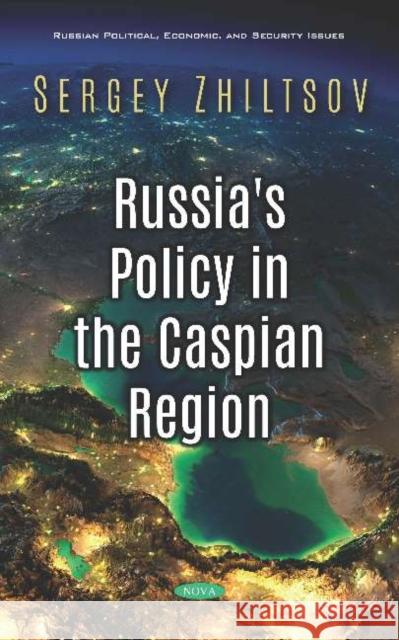Russia's Policy in the Caspian Region » książka
Russia's Policy in the Caspian Region
ISBN-13: 9781536157918 / Angielski
This book investigates the policy of Russia on the Caspian and in the nearby territories from old times to the beginning of the present millennium, thus, spanning several centuries. The book also discusses the motivations of the rulers of Rus', Moscow State, Russian Empire, the USSR and later on, Russia that pursued active foreign policy targeted to extension of the geopolitical influence and strengthening of the economic presence in the near-Caspian territories and on the Caspian Sea proper. The main stages of formation of the Russian foreign policy are studied. The causes underlying the rivalry of Russia with Persia and Turkey, Central Asian Khanates and European states for the leading positions on the Caspian are analysed. The authors describe the mechanisms used by Russia in its foreign policy with regard to the established political and economic conditions. Much attention is focused on the analysis of Russia's foreign policy in the Caspian region after disintegration of the USSR when the situation on the Caspian had changed drastically. Formerly there were two Caspian states -- USSR and Iran, but now three new independent states appeared (ie: Kazakhstan, Azerbaijan and Turkmenistan) which immediately became the focus of interest of non-regional states and leading oil and gas companies. This book describes how the policy of Russia has been changing in the face of a new geopolitical situation in the Caspian region. The approaches of Russia to addressing the regional problems, first of all, the international legal status of the Caspian Sea, hydrocarbon production and transportation, militarisation and ecology, etc. are analysed. All these factors urged Russia to develop new approaches towards the Caspian region. The book investigates the effect of the foreign policy of new Caspian states, the USA, EU and China on the Caspian policy of Russia. The complicated geopolitical situation on the Caspian and unceasing attention to its hydrocarbon resources force Russia to keep a close watch on the Caspian region that remains the main vector of the Russian foreign policy.











